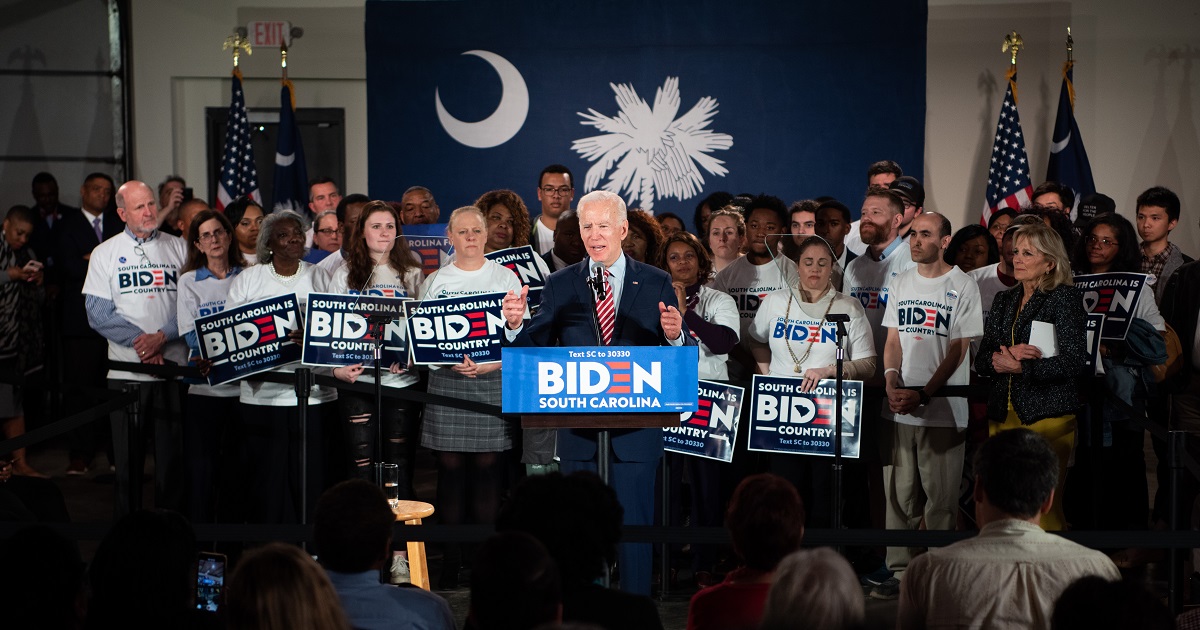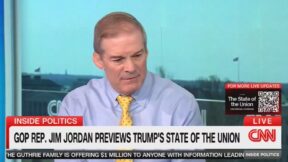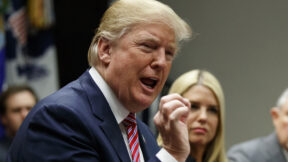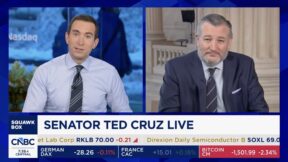South Carolina and Nevada Need to Kick the White States and the Media in the Teeth

Sean Rayford/Getty Images
Two of the whitest states in America — Iowa and New Hampshire — play far too outsize a role in selecting the nominee for the most diverse political party in America, and it’s time for South Carolina and Nevada to put an end to that once and for all.
To be a base Democratic voter watching the first two contests on the primary calendar — and the coverage thereof — is to be filled with seething, molten, embittered rage. In the space of a few weeks, we’ve watched the preferences of our diverse coalition of voters be completely upended by a few hundred thousand white people in Iowa and New Hampshire.
The week before the Iowa caucuses, former Vice President Joe Biden held a comfortable national lead, and Massachusetts Senator Elizabeth Warren was solidly in third place, while former South Bend Mayor Pete Buttigieg and Minnesota Senator Amy Klobuchar were a distant fifth and seventh, respectively. We woke up Wednesday with Buttigieg and Klobuchar nipping at Independent Vermont Senator Bernie Sanders’ heels, and the media declaring Warren and Biden all but dead in the water.
The lion’s share of that shift — though not all of it — is due to the narrative-setting power of Iowa and New Hampshire, and no matter how you feel about the specific candidates, the display these two states put on demonstrates their unworthiness to wield this much power.
Iowa gets a lot of credit for having been a spectacular shitshow, and it really, really was. An already-undemocratic caucus system descended into chaos due to disastrous problems counting the actual votes, but the power of a tiny, blindingly-white state to make contenders out of national also-rans is the worst, most-ignored problem with this enterprise. Yes, it worked out for Obama, but for reasons that are only relevant, by definition, once in history. The media makes constant token mentions of Iowa’s lack of diversity, yet constantly reinforces the state’s hold on the political narrative.
But let’s not give New Hampshire short-shrift here. Yes, they seem to have managed to count their votes — what, you want a cookie? — but the display that the media and the state’s voters put on Tuesday was no less a dumpster fire than Iowa was.
Let’s be clear about something: for a huge chunk of the Democratic base, this election is not a game, it’s not some contest of ideas, it is a decision that carries high stakes up to and including life or death. That includes things like health care — which tens of millions of us stand to lose if Trump wins — but also things like civil rights and not being gunned down and not being nuked and not being expected to grow gills and not dying in a back-alley abortion.
So it was a little bit disconcerting to see the good white people of New Hampshire basing this weighty decision on the catching of an imaginary tiger by the toe, or on which cable news personalities were mean to which Democratic socialist, or, as MSNBC’s Katy Tur discovered, which “pro-military” bone-spur Vietnam dodger and/or DNC-rigging for Hillary Clinton and/or which 401k performance that’s a continuation of the trend left by Barack Obama motivated them to get out and vote for Donald Trump:
The only thing worse than being told what these people think is being told constantly that we should care about what these people think, and base the future of the free world on it. This is not a knock on Klobuchar or Buttigieg or Sanders, who should be given the opportunity to showcase the support they can earn, but not on proving grounds that are the least representative and apparently most careless places in America.
This isn’t about my opinion — although I have those, and will get to them — it’s about turning our nominating process over to states that include people who are representative of our party, and care about it enough to take it seriously.
To that end, it is my hope that while Iowa’s first in the nation position is on the ropes with the media, the states of Nevada and South Carolina deliver results that crush the influence of these first two states. Unfortunately, Nevada is also a caucus state that was also a disaster in 2016, so the chances that they’ll offer clarity this time around are low. But both states’ diverse electorates can send a message by repudiating the field that Iowa and New Hampshire have given us.
What would that look like? From a purely principled standpoint, it would mean any combination of results that clearly corrects for what I like to call the Thrilla in Vanilla Factor. Bernie Sanders’ result was inflated by the fact that New Hampshire was practically his home turf, while Buttigieg and Klobuchar benefited greatly from momentum provided by some home-field advantage in Iowa.
None of them had to contend with large numbers of black voters, who overwhelmingly favored Biden among the candidates who were actually on the ballot. The conventional wisdom is that Elizabeth Warren was crowded out by Sanders’ progressivism or Klobuchar’s being a woman, but her agenda and rhetoric are much more centered around people of color than the top three New Hampshire finishers.
Or maybe Bernie or Pete deserve a blowout victory, who can say? Anything that decisively refutes the nonsense that came out of Iowa and (especially) New Hampshire would do the trick, for purposes of this thought experiment. Because what they left us — in the wake of their demonstrable carelessness — are: a frontrunner with a toxic “Democratic socialist” label and a problem attracting black voters that when their confidence in Joe Biden faltered, they immediately flocked to Mike Bloomberg in greater numbers than Bernie Sanders and two other candidates with zero and four percent support with black voters.
Which brings me to my preference. I think Pete Buttigieg and Amy Klobuchar are great people who would make good presidents — Klobuchar more so than Pete, whose resume is a little thin. I think Bernie Sanders is at least as qualified as Mickey Mouse, and so would have a chance at beating Trump, as Biden says. Despite my discomfort with Elizabeth Warren, I think she’d make a good president too, and who really knows how her vulnerabilities — or any of these candidates’ vulnerabilities — would play out in a general election against Trump?
When this race began, my favorites, in order, were Senators Kamala Harris, Kirsten Gillibrand, Cory Booker, Elizabeth Warren, and Amy Klobuchar. Joe Biden wasn’t in the race yet, and I thought he should sit out because I knew how this campaign would go, and I also thought America needed someone new to take on Trump.
Once Biden got into the race and took over the top slot, though, it occurred to me that if he were to become the nominee, he could also effectively be selecting our next Democratic president as well. He has a liberal but achievable policy agenda (which I wish was a little more ambitious), the requisite experience, and like my other top choices, he shares my values. He’s also an excellent extemporaneous speaker, an underappreciated trait that would serve him well if Trump ever dared to climb on a debate stage with him.
Along the way, Kamala Harris was felled by vicious media coverage that began with her now-infamous dustup with Biden over segregation, wherein the entire political media recast her heartfelt umbrage at the common cause Biden had made with segregationists decades earlier as a cynical stunt that was proven out by the failure of bussing to solve racism.
This became something of a theme with coverage of Harris, whose principled stands were repeatedly cast as gimmicks, and even laughed at and publicly dismissed by fellow candidates like Warren.
For most of her run, Senator Harris was crowded out by Biden with black voters, but still attracted significant support at times. And Biden, even after being weakened by his troubles in Iowa and the drumbeat of debunked Ukraine garbage during the impeachment trial, and perhaps by the emergence of Mike Bloomberg as a spending powerhouse, remains the leader with black voters.
In the past few weeks, it has become fashionable to point out the migration of Biden’s support with black voters to other candidates — particularly Bloomberg — as evidence of the weakness of his support most easily explained by shaken confidence in his ability to beat Trump. There’s some truth to this, in that if Biden falters in the race, his support with black voters will have to go somewhere.
But if Biden dropped out tomorrow, and Mayor Pete or Amy Klobuchar or Bernie Sanders or Mike “Xeroxer of Black Suspects” Bloomberg began to attract a significant percentage of the black vote, would any of these candidates be able to attract the kind of energy and turnout among black voters to rival Hillary Clinton’s, or Barack Obama’s?
Now, let’s stipulate that nobody knows anything anymore, and it’s possible that the prospect of a Trump reelection alone drives out record numbers of Democratic base voters no matter who’s at the top of the ticket. Would you bet your life on it?
Being Obama-adjacent gives Biden an advantage, and while he’s got some baggage on race — like the other candidates — his has been priced into the polling, along with his lengthy record of support for marginalized people, and he’s still leading. And unlike newly-anointed frontrunner Bernie Sanders, Biden won’t frighten away independent voters by calling himself a “Democratic socialist” or praising Fidel Castro in Trump campaign ads.
But Biden has also repeatedly teased Kamala Harris as a running mate, a move that could juice turnout as much or more than Barack Obama did. It would be a historic ticket, and a ticket that would share my values.
So I would like to see South Carolina and Nevada deliver a crushing victory to Biden, and maybe a strong second-place finish to Warren, to show the media that they won’t just “come aboard” with whatever the coin-flip caucus and the eeny meeny miny moe primary decide. But I’d settle for any result that tells the Democratic Party to make sure that next time, there is no next time for these privileged states.
This is an opinion piece. The views expressed in this article are those of just the author.
New: The Mediaite One-Sheet "Newsletter of Newsletters"
Your daily summary and analysis of what the many, many media newsletters are saying and reporting. Subscribe now!






Comments
↓ Scroll down for comments ↓